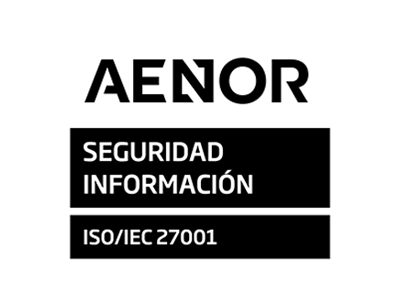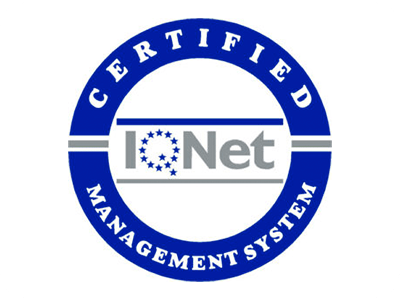What is HR Automation? And Why Does Your Business Need to Implement It?
June 7th 2023

Say goodbye to time-consuming, expensive, and bias-prone processes, and embrace the power of AI to make recruiting a breeze, conquer human error, and stay ahead of those ever-changing workforce trends. It’s time to unlock the power of AI to attract, develop, and retain top performers in a more efficient and effective manner.
Welcome to the era of HR automation, where cutting-edge technology and human resource management converge to revolutionize the talent management process. As HR managers, you have a lot on your plate – juggling recruitment, onboarding, performance evaluation, and countless other responsibilities. It’s no secret that the HR landscape is evolving rapidly, and it’s natural to feel a bit uncertain about embracing AI. But fear not!
In this blog post, we’ll shed light on the main challenges you face and how HR automation can be your secret weapon to overcome them with finesse. So, let’s dive in and explore the world of HR automation, where efficiency meets a touch of magic.
What are the main challenges HR managers face today?
HR managers are the unsung heroes of organizations, tirelessly striving to attract and retain top talent while ensuring a harmonious work environment. However, the modern HR landscape poses some daunting challenges that can feel like navigating a labyrinth. First and foremost, there’s the overwhelming volume of administrative tasks, from sifting through stacks of resumes to managing mountains of employee data.
As if that’s not enough, the tight labor market intensifies the competition for skilled candidates, making talent acquisition a daunting endeavor. Moreover, the ever-evolving legal landscape and compliance requirements add another layer of complexity to HR managers’ already demanding roles. With limited time and resources, it’s no wonder that HR managers find themselves craving a more efficient and effective way to navigate these challenges.
The benefits of implementing automation in talent management
Fortunately, automation can help address many of these challenges. By using AI-powered tools and platforms, companies can reduce bias, increase efficiency, and improve the candidate experience. For example, automated resume screening can quickly filter out unqualified candidates, saving recruiters time and effort. Chatbots and virtual assistants can also provide instant responses to candidate questions and schedule interviews, freeing up HR staff for more strategic tasks.
How automation can improve recruitment and hiring
One of the most time-consuming parts of talent management is the recruitment and hiring process. From posting job ads to conducting interviews to making job offers, there are numerous steps involved. However, by using automation tools, companies can streamline these processes and reduce the risk of errors.
For example, AI-powered sourcing tools can scan job boards and social media platforms to identify potential candidates. This can save recruiters time and effort in the initial stages of the hiring process. Similarly, automated scheduling tools can help coordinate interviews with multiple candidates, reducing the risk of scheduling conflicts.
Another area where automation can be particularly helpful is in reducing bias. Studies have shown that unconscious bias can affect hiring decisions, leading to a less diverse workforce. However, by using algorithms to screen resumes and assess skills, companies can reduce the risk of bias and ensure that all candidates are evaluated fairly.
With the right tools, companies can reach a wider pool of candidates, including those in different geographic regions or with specific skill sets. This can help ensure a diverse and inclusive workforce, which has been shown to improve business performance.
Enhancing employee engagement and retention through automation
Once a company has hired top talent, the next challenge is to keep them engaged and motivated. This is where automation can play a key role in talent management. By using tools such as performance management software and learning management systems, companies can provide employees with personalized development plans and feedback. This can help employees feel valued and supported, which is critical for retention.
In addition, automation can help identify potential performance issues before they become major problems. For example, automated surveys can gather feedback from employees on their job satisfaction and work environment. This can help identify areas where improvements can be made, such as providing additional training or adjusting workload.
Automating performance management and employee development
Performance management is another area where automation can be particularly beneficial. By using tools such as goal-setting software and performance-tracking systems, companies can ensure that employees are working towards specific objectives and are held accountable for their results. This can help improve productivity and ensure that employees are aligned with the company’s strategic goals.
Similarly, learning management systems can help ensure that employees have access to the training and development they need to succeed. By automating the process of identifying skills gaps and providing targeted training, companies can ensure that their employees are continuously learning and growing.
Key considerations when choosing an automation tool
When it comes to choosing an automation tool for talent management, there are several key factors to consider. First and foremost, it’s important to identify the specific challenges that your company is facing. For example, if you’re struggling with bias in the hiring process, you may want to look for tools that can help reduce this risk.
Another important consideration is the ease of use of the tool. Ideally, the tool should be intuitive and easy to learn, so that HR staff can quickly incorporate it into their workflow. Similarly, the tool should be customizable, so that it can be tailored to your company’s specific needs and processes.
Finally, it’s important to consider the cost of the tool, as well as any ongoing maintenance or support fees. While automation can be a cost-effective solution in the long run, it’s important to ensure that the upfront investment is within your budget.
Future steps
The future of HR automation holds great promise. Expect enhanced candidate experiences with AI-powered chatbots and immersive VR simulations. Predictive analytics will enable data-driven decision-making for workforce planning and talent management. Continuous learning platforms will personalize training recommendations, fostering a culture of growth. Dynamic performance evaluation systems will replace traditional reviews, enabling real-time feedback and coaching. Ethical AI will prioritize bias mitigation and promote inclusivity throughout the talent management process. With these advancements, HR managers will focus on strategic initiatives, nurturing a human-centric approach to talent management and embracing the exciting possibilities that lie ahead.
Don’t settle for outdated HR practices. Take a leap into the future with Dezzai’s HR automation solutions. Visit us here and empower your organization with next-level talent management capabilities.
Ready to see what we can do for you?
In the right hands, artificial intelligence can take human performance to a hitherto unimaginable level. Are you ready for evolution?




